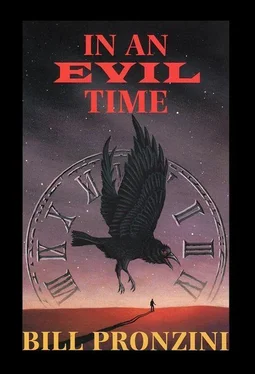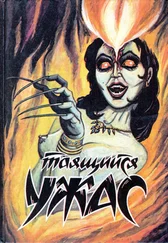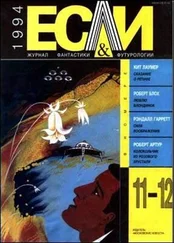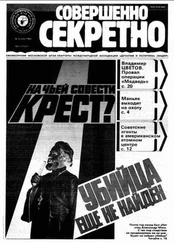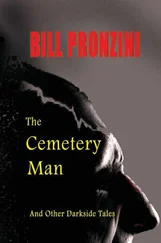Tuesday Evening
April Sayers, the woman from the Santa Rosa support group, called before dinner with a brief message: Safe arrival. No incidents, no difficulties. They’d be receiving an e-mail shortly.
Now, at least for the time being, he could quit worrying about Angela and Kenny.
Wednesday Afternoon
Stan Otaki was a well-regarded urologist and usually too busy to make short-notice, nonemergency appointments. But Hollis had known him for thirty years — they’d been classmates at Los Alegres High — and when he apologized for canceling his last two appointments and indicated he was ready to begin treatment, Otaki squeezed him at one o’clock.
He disliked doctors’ offices almost as much as hospitals — the medicinal odors, the gleaming equipment, the admixture of sterility and implied suffering. He sat uncomfortably in Otaki’s private office, offering another round of weak excuses and answering probing questions about urination, erectile dysfunction, levels of pain and discomfort. Then he submitted to a teeth-gritting rectal exam, a check of his blood pressure and vital signs. Otaki was not much for his words in the examining room; he waited until they were back in his office.
“Of course, I can’t tell you how far the cancer has progressed until we do a blood workup,” he said, “but my guess is that it hasn’t reached an advanced stage. If that’s the case, and your health is otherwise good, we should be able to control it with aggressive treatment.”
Advanced stage. Number III on the chart: cancer cells have spread outside the prostate capsule to tissues around the prostate, possibly into the glands that produce semen. It was probably too soon to worry about Stage IV — cancer cells have metastasized to the lymph nodes or to organs and tissues far away from the prostate such as bone, liver, or lungs — but then, you never knew with cancer; it could spread like wildfire. Number III was bad enough. Number IV was the next thing to a death sentence.
“I won’t make a definite recommendation until I see the test results,” Otaki said. “If they show no radical change, however, your best option is still going to be a prostatectomy. And the sooner the better.”
“No.”
“Look, Jack, you’ve made it plain how you feel about surgery, but—”
“No,” he said. “I’m not going to let you or anybody else cut me open, no matter how far the cancer has progressed. There’s radiation therapy, isn’t there?”
“Yes. Five days a week, six to seven consecutive weeks. Are you willing to undergo that kind of rigid schedule, endure the probable side effects?”
“If necessary.”
“Well, the decision is yours,” Otaki said. He ran a knuckle over his neat salt-and-pepper mustache, a gesture Hollis took to be disapproving. “Your body, your health.”
“Are you telling me radiation probably won’t work?”
“Of course not. It may well do the job.”
“And if it doesn’t?”
“Ruling out surgery under any circumstances radically increases the risk factor. That’s a fact — that’s what I’m trying to make you understand. If you doubt me, get a second or third opinion—”
“I don’t need any other opinions. I don’t doubt you.”
“Will you at least give it some more thought? Talk to Cassie about it?”
“Yes, all right.”
But he knew he wouldn’t.
Thursday Morning
There, at last, on page 3 of the Chronicle :
PROMINENT S.F. ATTORNEY
REPORTED MISSING
It was the second item in the Bay Area Report section devoted to minor news stories. Less than three column inches — another good sign. He read the paragraphs avidly.
David J. Rakubian, 35, personal injury attorney known for his tenacious courtroom tactics... last seen late Friday afternoon at his South Beach offices... reported missing by his paralegal, Valerie Burke, on Monday afternoon... mandatory waiting period before police could take official action... Rakubian’s car found in the garage of his St. Francis Wood home... no evidence of foul play... recently divorced from his wife of nine months... arrested in Los Alegres three weeks ago for public battery on his ex-wife...
No evidence of foul play . That was the key phrase. The police hadn’t found anything suspicious in the house; it would take a thorough forensic examination to bring out blood traces, and it wasn’t likely there’d be one without something concrete to support it.
The paralegal would be the source of information about the marriage breakup, coloring it to favor Rakubian; the part about public battery probably had been dug up by the reporter. The police had Hollis’s name from Valerie Burke, too, and a full account of his angry outburst in Rakubian’s office, plus the fact of his second visit last week. It would not be long before he was contacted — today, tomorrow at the latest. Unless he took the initiative first.
He glanced across the breakfast table. Cassie was sipping coffee, reading the Datebook section. He drew a breath, then rattled the newsprint and said explosively, “My God!”
Her head jerked up. “What?”
“Look at this,” he said. He passed her his section, tapping the article with his forefinger.
She looked. And then she looked at him, looked past him — a bleak, distant stare. After a few seconds she said, “What does this mean?”
“I wish I knew.”
“Coincidence, Jack?”
“Coincidences happen. One could’ve happened to him.”
“Such as what? A convenient accident?”
“That, or something else. A shyster like him must have plenty of enemies. He paused. “There’s another possibility, too.”
“Yes?”
“It was voluntary,” he said. “What if he found out somehow about Angela going away?”
It was like a slap; she winced, stiffened. “You mean he might’ve gone looking for her, hunting her?”
“I hope to God that’s not it.” The lies were like fecal matter in his mouth, hurting him as much as they were hurting her. He went on with it, hating himself again. “But I wouldn’t put anything past him.”
“How could he have found out?”
“How does anybody find out anything?”
“But he couldn’t know where she went.”
“No. There’s no way he could’ve followed her, with Eric right there. We’ll e-mail her, tell her what’s happened, warn her to be extra careful. Alert April Sayers, too.”
Cassie nodded. But then she said, “I don’t know. I don’t know, Jack.”
“Don’t know what?”
“His car... the paper says it’s in his garage. If he’s gone looking for Angela, why didn’t he take his car?”
“Decided it was too conspicuous, maybe. Or he went somewhere by air.”
“That doesn’t sound like Rakubian. To just drop out of sight that way — no calls to his office staff, leaving everything behind.”
She was thinking too much. Too smart for her own good. “He’s psychotic, Cass. You can’t predict what a psycho will do.”
“He’s been consistent all along, hasn’t he? Disappearing when he can’t possibly have any idea where Angela went... it just doesn’t sound right.”
He couldn’t push it any more; it would only arouse her suspicions. He said, “If something did happen to him, accident or otherwise, it’s good news — the best news we could ask for. A kind of miracle.”
“Is it?”
“If he turns up dead, or doesn’t turn up at all, it means Angela and Kenny can come home. It means we can all stop being afraid.”
“I don’t know,” she said again. “I don’t like this.”
“What don’t you like? You can’t want Rakubian to still be alive somewhere.”
“I’ve wished him dead a hundred times.”
Читать дальше
